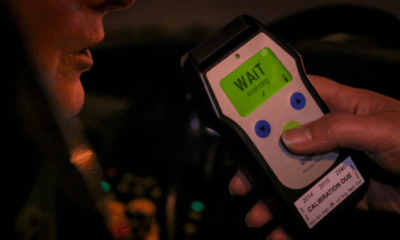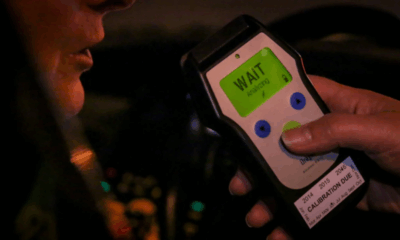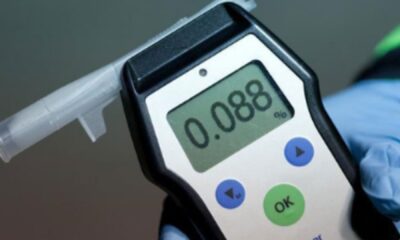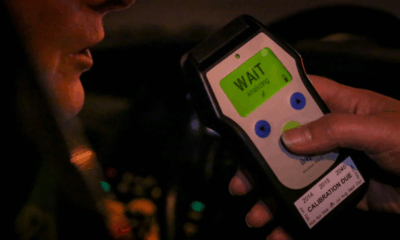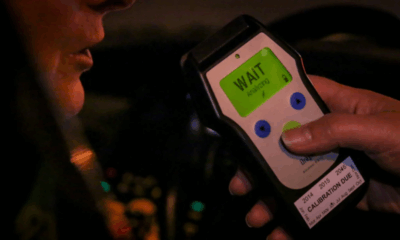Science
New Zealand Police Mandate Alcohol Breath Test Training for All Officers
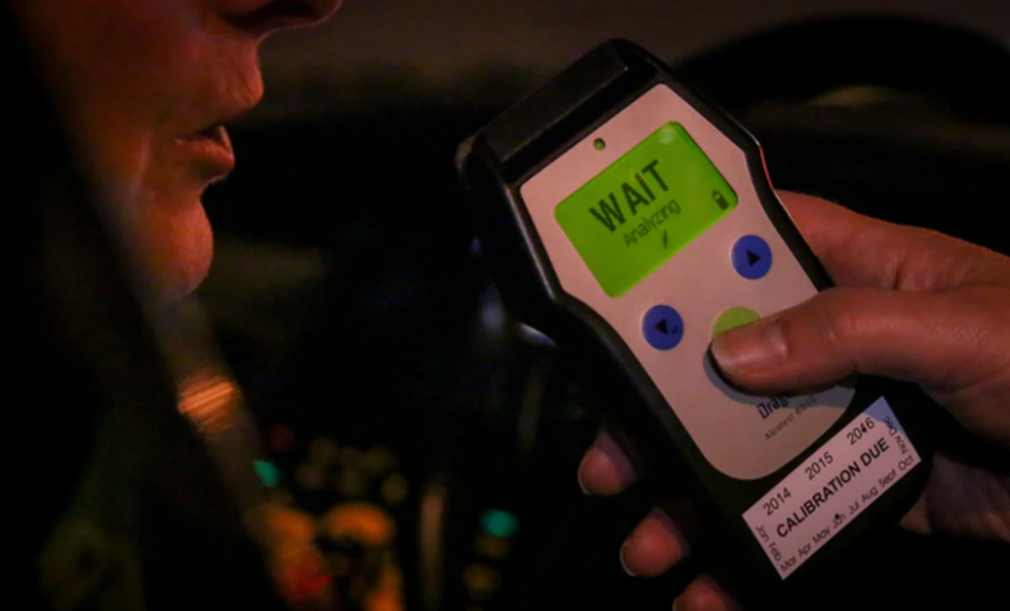
Every police officer in New Zealand is now required to complete an online training module for alcohol breath testing. This decision follows the revelation that over 100 staff are being investigated for allegedly falsifying results related to 30,000 breath tests. The issue surfaced after police developed a new algorithm that uncovered discrepancies in the data, as the breath-testing devices could not identify whether tests were conducted legitimately.
According to a memo sent to police staff, which was reviewed by RNZ, the recent findings have significantly impacted public trust in the police and their partnerships with other agencies. The memo emphasized that the police are committed to restoring this trust, especially as the summer surge period approaches.
Acting Deputy Commissioner Jill Rogers stated, “This training will reinforce correct practices and expectations, ensuring every staff member understands their responsibilities.” The mandatory training module, which became available on December 4, 2023, takes approximately 15 minutes to complete. It covers essential topics such as proper device operation, docking, and data download procedures, highlighting the importance of breath screening for road safety.
Rogers elaborated on the nature of the falsified tests, explaining that officers had recorded more interactions with the breath-testing devices than actual encounters with motorists. This manipulation occurred while officers were in moving vehicles, leading to results that fell outside normal parameters. She expressed confusion over the rationale behind the falsification, particularly given that legitimate tests had reached 4.2 million last year, contributing to the lowest number of alcohol-related fatalities on New Zealand roads.
The police are now investigating the motivations behind these actions, with the possibility of a criminal investigation into the staff involved. Rogers stated, “I can’t predict what’s going to come from those employment investigations… But if we were to identify criminal offending, then that’s what we would address.” Despite the seriousness of the allegations, no staff members have been suspended as investigations continue.
The falsified tests were reported to have occurred nationwide. A police spokesperson confirmed that the falsifications exceeded national testing targets, which were set at 3.3 million tests under the Road Policing Investment Programme (RPIP). The New Zealand Transport Agency (NZTA) became aware of the issue in September 2023 and expressed concern over the impact on road safety enforcement.
A representative from the NZTA stated that drink-driving enforcement is vital for maintaining safety on New Zealand’s roads. They are closely monitoring the situation and have requested further information from the police as they address the issue. The spokesperson noted that there is clear evidence indicating that increased enforcement levels lead to improved road safety outcomes.
As the police prepare to implement the mandatory training and address the implications of the falsified tests, the Ministry of Transport has also been briefed on the situation. A spokesperson confirmed their concern and affirmed collaboration with both the NZTA and the police to monitor developments closely.
The ongoing investigations and training initiatives aim to uphold the integrity of New Zealand’s road safety measures, reassuring the public of the police’s commitment to effective and trustworthy enforcement practices.
-

 Sports2 months ago
Sports2 months agoNetball New Zealand Stands Down Dame Noeline Taurua for Series
-

 Entertainment2 months ago
Entertainment2 months agoTributes Pour In for Lachlan Rofe, Reality Star, Dead at 47
-

 Entertainment4 weeks ago
Entertainment4 weeks agoNew ‘Maverick’ Chaser Joins Beat the Chasers Season Finale
-

 Sports5 days ago
Sports5 days agoEli Katoa Rushed to Hospital After Sideline Incident During Match
-

 Sports2 months ago
Sports2 months agoSilver Ferns Legend Laura Langman Criticizes Team’s Attitude
-

 Politics1 month ago
Politics1 month agoNetball NZ Calls for Respect Amid Dame Taurua’s Standoff
-

 Entertainment2 months ago
Entertainment2 months agoKhloe Kardashian Embraces Innovative Stem Cell Therapy in Mexico
-

 World3 months ago
World3 months agoPolice Arrest Multiple Individuals During Funeral for Zain Taikato-Fox
-

 Sports3 months ago
Sports3 months agoGaël Monfils Set to Defend ASB Classic Title in January 2026
-

 Sports3 days ago
Sports3 days agoJamie Melham Triumphs Over Husband Ben in Melbourne Cup Victory
-

 Entertainment1 month ago
Entertainment1 month agoTyson Fury’s Daughter Venezuela Gets Engaged at Birthday Bash
-

 Sports1 month ago
Sports1 month agoHeather McMahan Steps Down as Ryder Cup Host After Controversy

